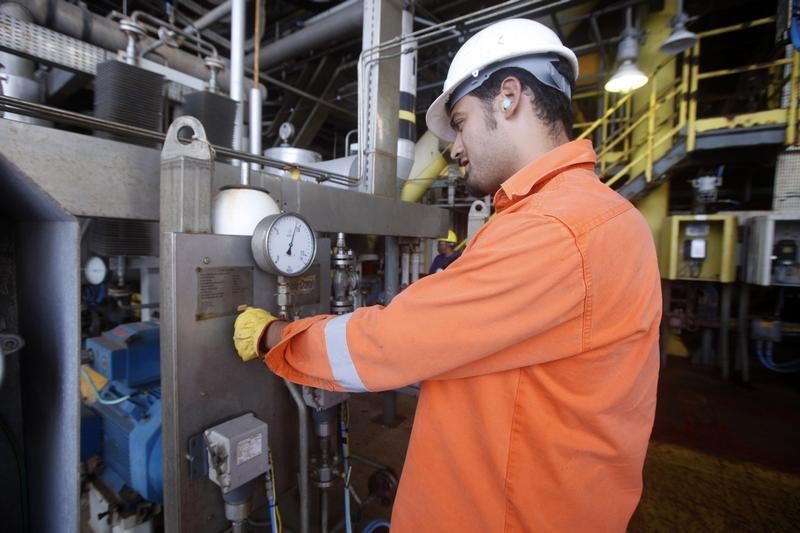By Karolin Schaps
LONDON (Reuters) - Premier Oil (LON:PMO) has saved about $250 million (191.13 million pounds) thanks to the depreciation of the British pound following the country's vote to leave the European Union, its chief executive said.
Premier Oil, which on Thursday announced a return to profit in the first half of the year despite weak oil prices, earned the windfall from investments denominated in sterling, lower decommissioning fees, also in sterling, and a higher value for its $120 million acquisition of E.ON's North Sea assets.
The pound has fallen to the lowest level against the dollar in more than 30 years since Britain's Brexit vote in late June.
"A weaker sterling exchange rate means it costs us less dollars to pay for our investments," Premier Oil Chief Executive Tony Durrant told Reuters.
Premier Oil, which is a heavy investor in Britain's North Sea, also raised its full-year output target by four percent on Thursday after better-than-expected output mainly from its British fields. It now expects full-year output of 68,000-73,000 barrels per day, up from 65,000-70,000 bpd previously set.
Durrant said next year's average daily production could be around 10,000 barrels higher as its $1.8 billion North Sea Catcher project comes on stream in 2017.
"Premier should be able to deliver a record production rate of over 100kboe/d in our view. This would be a positive psychological hurdle to pass," said analysts at Jefferies, who recommend a "hold" rating on the stock.
The London-listed firm, whose operations stretch from the Falkland Islands to Indonesia, returned to profit in the first six months of the year, reporting profit after tax of $167 million, compared with a $375 million loss the same period last year.
Premier Oil's shares rose more than 2 percent. They have risen more than 60 percent since the start of the year, compared with a 9 percent rise in the oil and gas company index over the same period.
The company's share price more than doubled in February following its acquisition of E.ON's North Sea assets.
Premier Oil said refinancing discussions with lenders would continue until around the end of September when terms will be disclosed. Premier Oil said debt levels stood at $2.6 billion at the end of June, higher than a year ago but down from the end of the first quarter.
